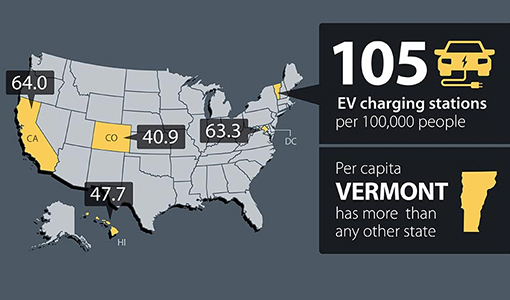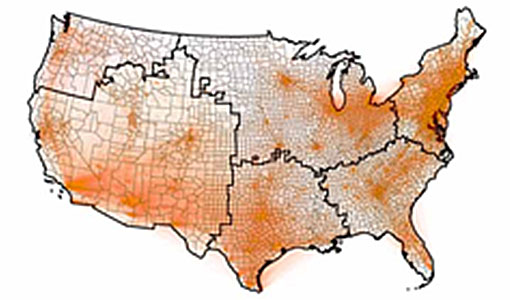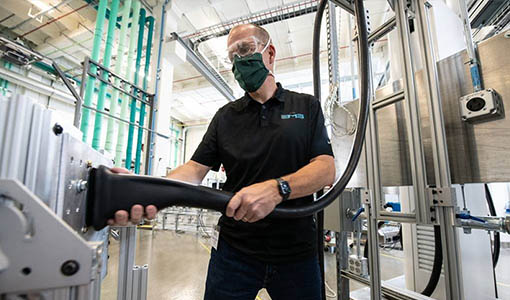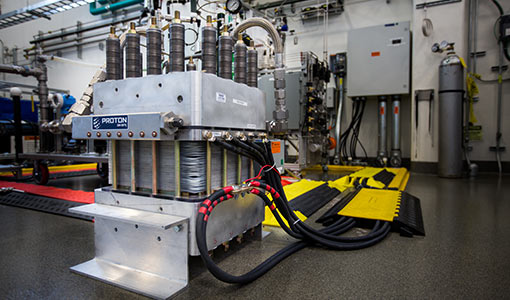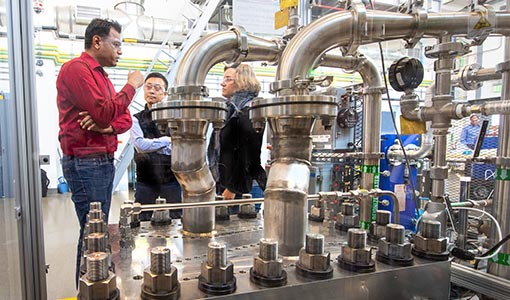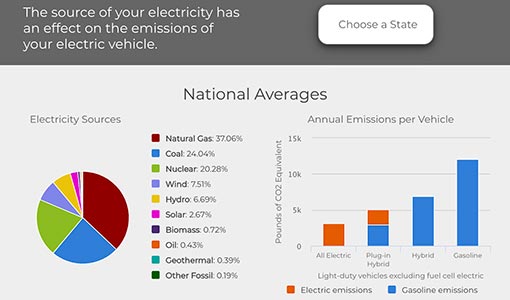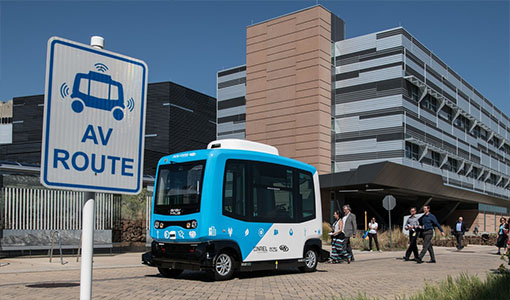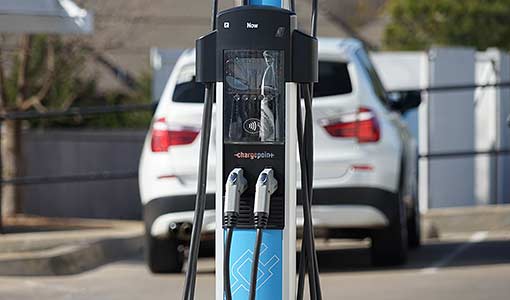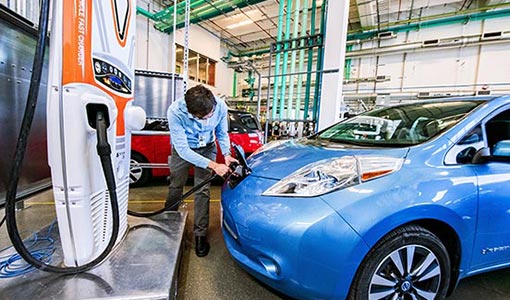Explore our collection of new stories for this topic.
Search or filter for a specific story using the options below.
November 2020
EV Charging Stations Continued Strong Growth in Early 2020, NREL Report Shows
As electric vehicles (EVs) have increased in popularity over the past few years, the infrastructure to charge them has similarly expanded along interstate highways, at workplaces, and at public parking lots across the country.
NREL Examines U.S. Transportation Patterns During COVID-19 Pandemic
To predict the future, it helps to know a thing or two about the past. If you want to track down where the next viral hotspot might be, it is useful to know how those spreading the disease are moving.
October 2020
New Directions Sharpen NREL's Cybersecurity Research, Protecting Energy Systems Beyond the Grid Edge
When it comes to cybersecurity for the electric grid, researchers at NREL are looking ahead.
NREL-Hosted Event Supports Industry Development of Megawatt Charging System Connectors
On Sept. 23-24, 2020, NREL joined forces with the Charging Interface Initiative (CharIN) to host a high-power electric vehicle charging connector test event.
NREL To Lead New Lab Consortium To Enable Low-Cost Electrolyzers for Hydrogen Production
The H2NEW consortium will conduct R&D to enable large-scale manufacturing of affordable electrolyzers that use electricity to split water into hydrogen and oxygen.
NREL Celebrates a Year of Innovation on National Hydrogen and Fuel Cell Day
October 8—10/08—is National Hydrogen and Fuel Cell Day, a date chosen to represent the atomic weight of hydrogen (1.008). The U.S. Senate officially designated Oct. 8, 2020, as National Hydrogen and Fuel Cell Day with the passage of Senate Resolution 720, and Colorado's governor issued a proclamation to proclaim the date as Hydrogen and Fuel Cell Day in Colorado.
September 2020
Updated Tool Makes Calculating EV Emissions Easier, More Precise
Electric vehicles (EVs) typically produce fewer emissions than conventional vehicles, but when measuring emissions, the source of electricity matters. The emissions benefit varies from one state to the next depending on how the electricity to charge the battery was generated.
Automated Mobility District "Digital Twin" Provides Insights for Urban Transportation Systems
The Automated Mobility District (AMD) modeling and simulation toolkit makes it easier for researchers and city planners to quantify the advantages and disadvantages of similar transportation evolutions.
August 2020
Annual Technology Baseline Expands To Include Transportation Data
The first-ever Transportation Annual Technology Baseline consolidates U.S. vehicle and fuel technologies data for current and future markets through 2050.
Researchers Explore Charging Flexibility of Shared Automated Electric Vehicles
Shared automated electric vehicles (SAEVs) may bring lower costs, reduced emissions, and a better travel experience, but their uncoordinated charging at scale could stress the electric grid and increase costs. So, an NREL research team explored the potential charging flexibility of future SAEV fleets.
Share
Last Updated May 5, 2025

